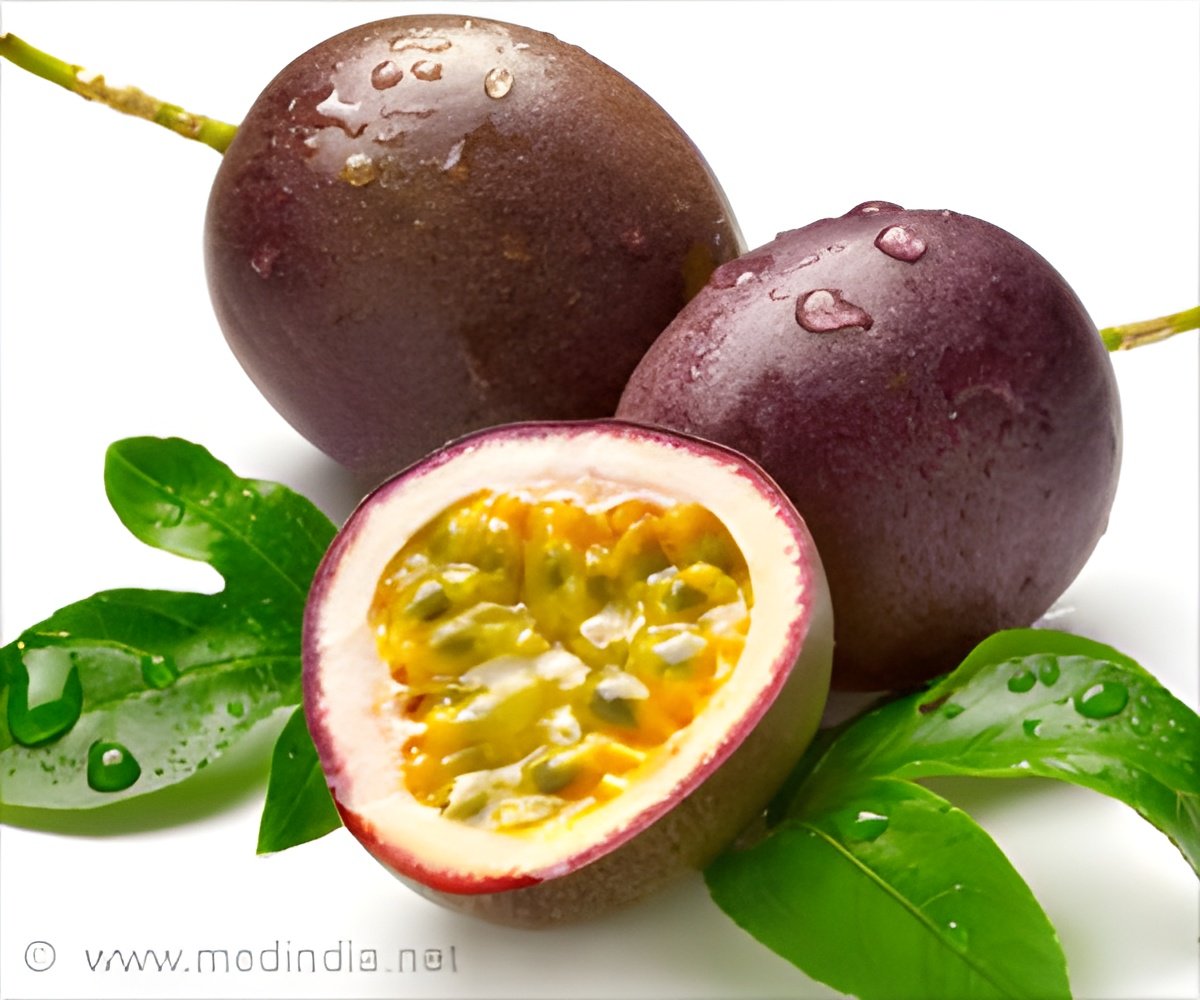How to reduce food spoilage? Antioxidants and polyphenols in passion fruit peels can be used in making an edible food coating to preserve fresh fruits and fresh cuts from spoiling.

‘Want to prevent food spoilage? An edible food coating made from passion fruit peels can preserve fresh fruits and fresh cuts from spoiling.’
Read More..




The researchers extracted, micro-encapsulated, freeze-dried and powdered passion fruit (Passiflora edulis, Sims) peels from an organic farm. This varietal is known for its medicinal value. Globally, passion fruit is mainly grown for concentrated juice. Read More..
Their metabolomic and other analyses in antioxidants show the powders have the properties needed for a quality, stable, edible food coating. The powders can also be functional ingredients in natural food additives.
When fresh produce is packaged in plastic, the plastic creates a ‘micro-atmosphere’, says Prof Olaniyi Fawole, from the University of Johannesburg. And that puts the brakes on what oxygen can do to the produce.
“Oxygen is the bad guy, it causes a lot of biochemical degradation. So, we want to limit the oxygen that gets to the produce. And we also want to limit dehydration. Edible food coatings can potentially solve both the oxygen and dehydration problems in the cold chain,” he adds.
Ideal Coating to Prevent Food Spoilage
“If you coat the product, you reduce the interference from a high oxygen atmosphere, because there is a barrier. Dehydration is prevented because the coating keeps the moisture on the inside,” says Fawole.However, any such coating needs to have high antioxidant content to help prevent spoilage due to oxidation and should also contain antimicrobials. An edible coating should not interfere with the color, appearance or taste of the product.
Advertisement
Microencapsulation to Preserve Antioxidants and Polyphenols
The microencapsulation process preserved high antioxidant and polyphenol content from the passion fruit peels. This is significant, because antioxidants and other bioactive compounds are easily destroyed by industrial processes, pH, high storage temperature, oxygen, light, solvents, and metal ions.The researchers used one of three carriers for the microencapsulation: gum arabic (GA), maltodextrin (MT), or waxy starch (WS). When they measured the encapsulation efficiency (EE) of the three carriers, they found EE’s from 82.64 to 87.18%. This indicates that antioxidants and polyphenols should be well preserved within the microcapsules of the coated powder particles.
Advertisement
The first, DPPH radical scavenging activity showed that all three carriers possessed 45.85 to 51.29 mM Trolox Equivalent (TE)/ g DM (WS).
The second, ferric reducing antioxidant power (FRAP), showed that the carriers possessed 32.30 - 37.47-mM TE/ g DM.
Trolox is a synthetic water-soluble antioxidant, and it has been used as a standard antioxidant for these antioxidant assays.
There is a drive towards alternatives to synthetic antioxidants as their safety could be questioned by consumers.
“The results mean that the encapsulated powders could be viable alternatives to synthetic antioxidants and can provide valuable properties such as antibrowning and anti-senescence behavior. They also offer the additional benefit of being edible,” says Fawole.
To identify which polyphenols are present in the microencapsulated powders, the researchers ran metabolomic analyses, using liquid chromatography mass spectrometry (LC-MS). Commercially important polyphenols preserved in the microencapsulated powders at useful levels are vanillic acid glucoside, quercetin, citric acid, gluconic acid and caffeic acid.
Long shelf life, many doses and excellent solubility.
“An edible coating or natural food preservative may be potent, but if its raw material is not stable, it is useless. For example, if it is hygroscopic, meaning it absorbs moisture, it is not suitable for industrial scale applications,” says Fawole.
“These microencapsulated powders are non-hygroscopic, for all three carriers. If these are well-packaged, and stored cool and dry, they should last up to six months. Also, you can open up a container, use what you need, close the container, and the rest will be stable. It won’t be necessary to use the contents of an entire container in one go.”
Overall, the detailed laboratory results indicate that microencapsulated powders from passion fruit peels are highly suitable as an active ingredient in edible food coatings, and natural food additives, particularly for ‘naked’ fresh fruit, and fresh cuts.
Source-Eurekalert















